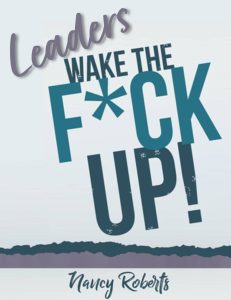If you’ve ever worked with me or heard me speak, you may recall my all-time favorite (and most often used) mantra:
“If it triggers me, it’s about me.”
Let me explain this with an example. Suppose someone calls you “fat.” If you’ve struggled with weight or body image issues, that statement might feel hurtful. But if body image has never been a concern for you, the word “fat” could just make you laugh.
This shows that the word itself isn’t the real issue—it’s only a trigger if you have some unresolved issue with it.
Understanding Your Triggers
So, why am I talking about being called “fat” in a newsletter about Emotional Intelligence (EQ)?
Because the foundation of EQ is Self-Awareness, and one of the most powerful ways to improve Self-Awareness is by identifying what triggers us and why. Our triggers act as signposts, showing us what’s really going on inside.
Typically, when we are triggered, we focus on the person who offended us. If they’d just stop their behavior, we’d feel better, right? We put the responsibility for our peace of mind on their shoulders.
But here’s the thing: we can’t control other people’s behavior. Sure, you might guilt or coerce someone into changing for a while, but it’s never sustainable.
The Role of Triggers in Emotional Intelligence
What is sustainable? Figuring out why something is bugging you and dealing with it from the inside out. When you handle your triggers internally, you gain the emotional resilience to manage difficult situations more effectively.
This isn’t to say that other people never exhibit behaviors that need correction. But imagine how much better you’d handle these situations coming from a place of High Emotional Intelligence versus Low Emotional Intelligence.
3 Steps to Handling Your Triggers
If there’s something or someone you want to change in your life, consider this simple process we teach in our EQ Trainings:
- Know your trigger – Recognize what sets you off.
- Own your trigger – Accept that it’s about you, not them.
- Fix your trigger – Work on resolving the internal issue.
Only by going through this process can you handle the situation from a calm, powerful position—one that enhances your Emotional Intelligence.
“95% of people consider themselves ‘self-aware,’
when, in reality, that number is more like 10-15%.”
– Harvard Business Review
“Until you make the unconscious conscious, it
will direct your life and you will call it fate.”
– Carl Jung
Boost Your Self-Awareness and EQ with Our Certification Program
If you’re ready to take your Emotional Intelligence to the next level, consider our upcoming NEW EQ Certification program, launching in 2025! This comprehensive training will equip you with the tools to understand people and their performance at a deeper level, helping you improve the entire employee lifecycle—from hiring to retention.
What you’ll gain:
- Mastery of the four sciences in a validated, bias-free assessment.
- The ability to make more informed hiring decisions and identify high-potential leaders.
- Techniques to increase engagement and retention in your organization.
Join us at the Woodcliff Hotel & Spa in Rochester, NY, or complete your certification through our online learning portal.
For more details, call 888-347-2949 or email info@discwizardonline.com.
Take charge of your triggers—and your Emotional Intelligence!






